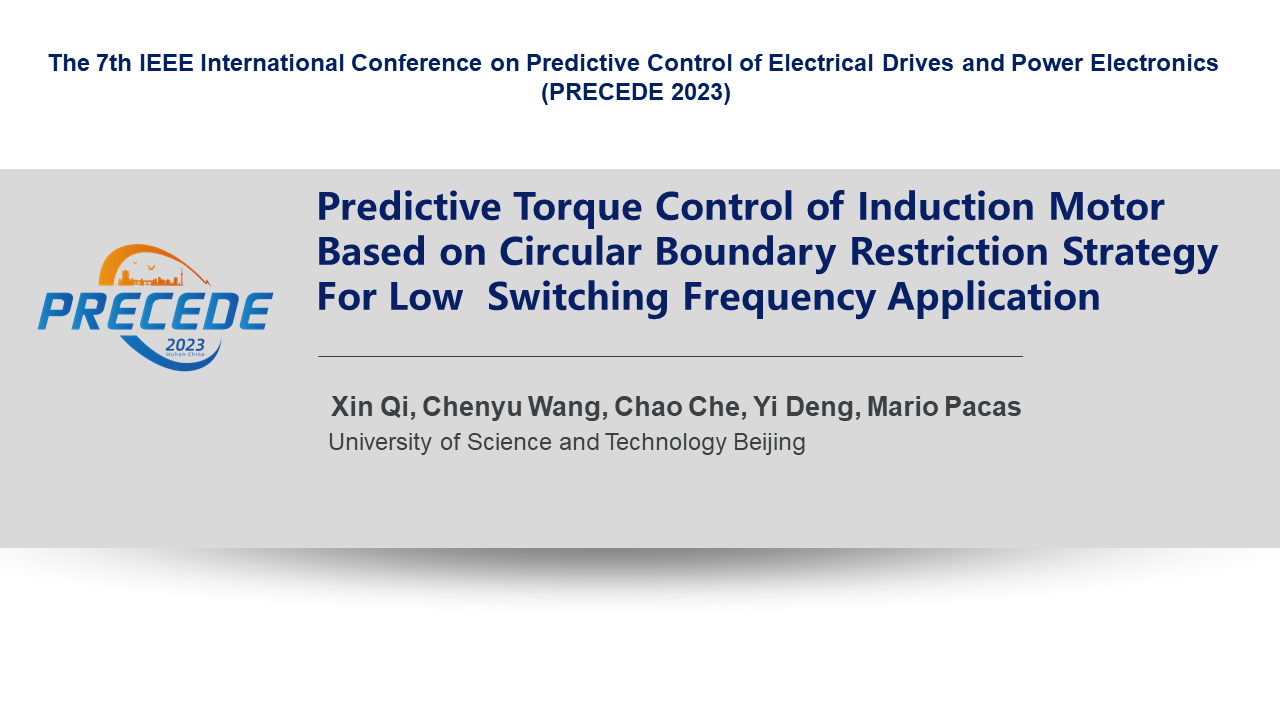Copyright © The 2023 IEEE International Conference on Predictive Control of Electrical Drives and Power Electronics
Powered by
Aconf.org
, One-stop Solutions for Academic Events

Start Time:2023-06-19 10:15 (Asia/Shanghai)
Duration:0min
Session:[E] Poster Session » [E3] Poster Session 3
Xin Qi (S’06–M’11–SM’18) was born in Beijing, China, in 1982. He received the B.S. and Ph.D. degrees in electrical and mechanical engineering from the University of Science and Technology Beijing, Beijing, China, in 2004 and 2011, respectively.
He was a Research Assistant at the Electrical Machines and Drives Laboratory, University of Wuppertal, Wuppertal, Germany, in 2009, 2010, and 2012. In 2018-2019, he was a Visiting Scholar at the same University. He is currently an Associate Professor of Mechatronics Engineering with the Department of Mechatronics Engineering, School of Mechanical Engineering, University of Science and Technology Beijing. His research interests include sensorless control of ac machines, online op-timized pulsewidth modulation techniques, and control strategies for inverters and ac machine drives.
Chenyu Wang was born in Fujian, China, in 2000. He received the B.Eng. degree in mechanical engineering from the University of Science and Technology Beijing, Beijing, China, in 2022. He is currently working toward the M.E.E. degree at the University of Science and Technology Beijing, Beijing, China. His research interests include model predictive control and motor control.



Comment submit